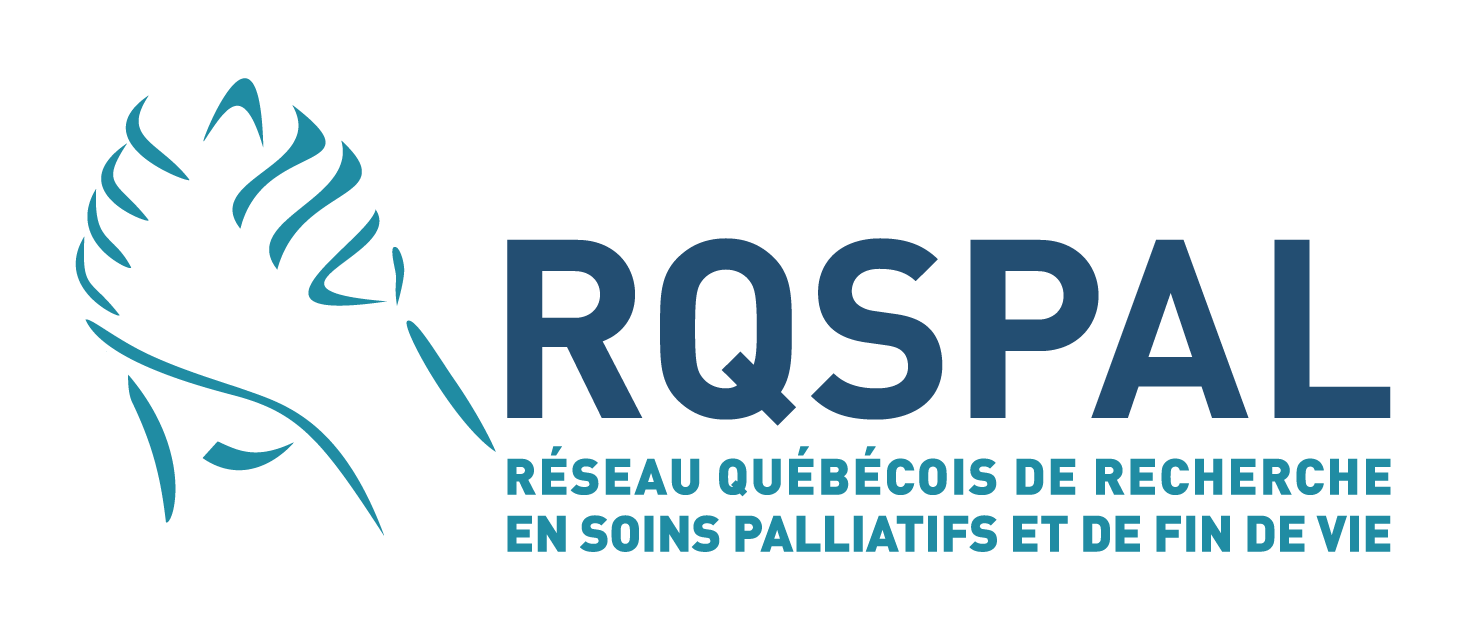The mission of the Quebec Network for Research in Palliative and End-of-Life Care (RQSPAL) is to significantly contribute, through research and knowledge mobilization activities, to improving the quality, accessibility, and equity of palliative and end-of-life care (PEOLC) following an integrated approach from diagnosis of a life-limiting condition to end-of-life and bereavement, for individuals of all ages, their loved ones, and the community.
This mission can be accomplished by optimizing synergy among the various stakeholders in the PEOLC ecosystem and caregiving (closely linked to PEOLC) and by increasing research capacity on these themes in Quebec.
Primarily concerned with the quality of life of individuals with a life-limiting diagnosis and their loved ones, the work of RQSPAL and its members considers the entire care trajectory in its care or living environment, from diagnosis to end-of-life and during bereavement. Our Network aims to support community mobilization and citizen partnership, particularly with individuals with a life-limiting diagnosis and caregivers, in the research process as well as to promote the emergence of organizations and environments consistent with the holistic philosophy of PEOLC.
Values
The deployment of RQSPAL and the realization of its mission are guided and inspired by the following values: integrity, collaboration, excellence, scientific rigor, and humanism.
Mandate
To develop research in palliative and end-of-life care by advancing knowledge and practices, as well as through knowledge transfer.
Vision
Our vision includes the consolidation of activities, the improvement of existing infrastructures, and the enhancement through new activities and orientations. More specifically, our common vision for Quebec is to:
- Become a national and international leader in palliative and end-of-life care (PEOLC) through the production of actionable, inclusive, and innovative scientific knowledge;
- Offer a culture of excellence and enhanced competitiveness for PEOLC researchers through cohesive and complementary actions focused on priorities, and by playing a central role in the development of digital health and open science in the field of PEOLC;
- Support the societal recognition of research in PEOLC and better integration of knowledge and innovation into practice and policy-making in PEOLC, from a sustainable health perspective;
- Ensure a large and qualified next generation to meet current and future societal challenges.
Objectives
- To diversify and mobilize the active forces of the scientific community in PEOLC in a coordinated manner to address unmet needs from a sustainable perspective and contribute to accelerating the advancement of knowledge at provincial, national, and international levels;
- To accelerate the development and availability of research data for researchers and access to common resources and research results in PEOLC from an open science perspective;
- To increase the networking of diverse and intersectoral expertise and the implementation of projects that promote citizen participation, partnerships with individuals with lived experience, and user environments related to PEOLC (e.g., decision-makers, community organizations, the health and social services network);
- To support the deployment of effective and adapted awareness and knowledge transfer strategies for different audiences by engaging in multidirectional dialogue;
- To recruit, support, and highlight the richness of the next generation and to promote training in rigorous and innovative research approaches.

